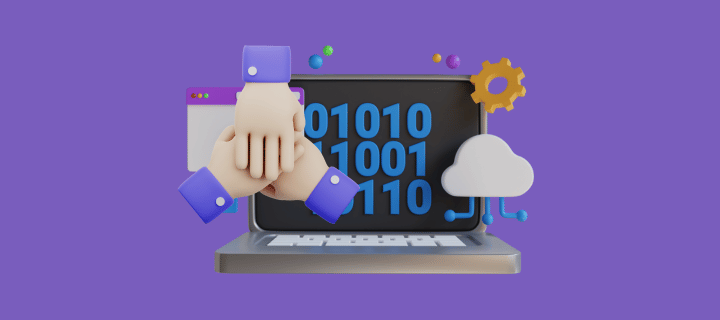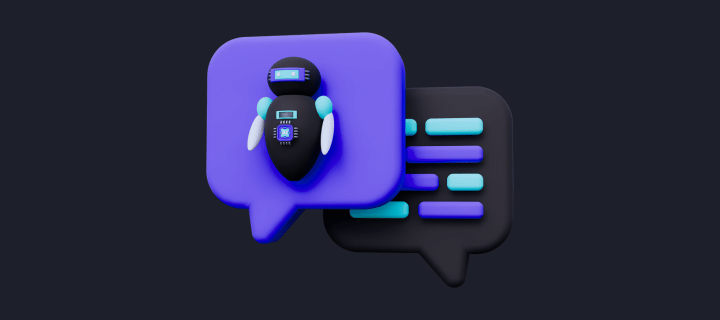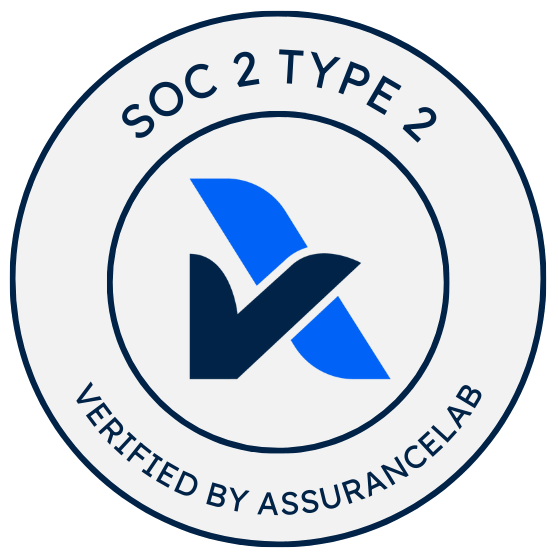
Code Review for Remote Teams: Harmonizing Workflows and Boosting Collaboration
Unlock seamless code review for remote teams: Strategies for asynchronous workflows, AI-powered assistance, and enhanced collaboration.

Key takeaways for Remote Code Review Success
- Asynchronous workflows are essential but challenging: Remote teams thrive on flexibility, but asynchronous communication can introduce delays in code review for remote teams.
- Context switching is amplified in remote settings: The distractions of remote work exacerbate the productivity drain of constant context switching during code review for remote teams.
- AI and automation are force multipliers for remote teams: AI-powered code review and smart automation are critical for streamlining workflows and maintaining quality in code review for remote teams.
- Unified platforms are the key to harmonious remote collaboration: Integrated tools that centralize communication and workflows are essential for effective code review for remote teams.
The Unique Challenges of Code Review for Remote Teams
Code review for remote teams presents a distinct set of challenges compared to in-office environments. We recently interviewed 30 remote development teams to understand their biggest pain points. The consistent themes that emerged highlight the critical need for optimized code review workflows for remote teams. Let’s dive into the core issues:
Asynchronous Communication: The Remote Team’s Double-Edged Sword in Code Review
Asynchronous communication is a cornerstone of remote work, offering flexibility and autonomy. However, our interviews revealed that it’s also a primary source of friction in code review for remote teams. The “waiting game” is real. When reviewers are scattered across time zones, pull requests can languish for hours, sometimes even a full day, before receiving initial feedback. This delay directly impacts development velocity and release cycles for remote teams doing code review.
PullFlow directly addresses this challenge by keeping all PR discussions centralized within dedicated Slack threads. This ensures everyone on the remote team stays synchronized, regardless of their location or working hours, minimizing disruptive back-and-forth and accelerating feedback loops in code review for remote teams.
Context Switching: A Productivity Killer, Especially for Remote Developers
Context switching is detrimental in any development environment, but it’s amplified in remote work. Our research indicated that remote developers already battle more distractions at home. Adding the constant need to switch between coding, GitHub, Slack, and other tools for code review for remote teams creates significant cognitive overload. Every context switch breaks focus and erodes productivity, hindering the efficiency of code review for remote teams.
PullFlow is designed to minimize this context switching tax. By bringing PR discussions directly into Slack and offering actionable commands, PullFlow allows remote teams to manage much of their code review workflow without constantly leaving their primary communication hub. This streamlined approach helps remote developers stay in flow and maintain focus during code review for remote teams.
Tool Overload: The Remote Team’s Platform Proliferation Problem
Remote teams often rely on a diverse stack of tools – GitHub, Jira, Slack, CI/CD pipelines, project management software, and more. While each tool serves a purpose, juggling multiple platforms for code review for remote teams can become overwhelming. Our interviews confirmed that managing this tool sprawl adds overhead and complexity, making it harder for remote teams to maintain efficient code review workflows.
PullFlow offers a centralized solution. By integrating deeply with GitHub, Slack, and VS Code (and other IDEs), PullFlow creates a unified hub for code review for remote teams. This integration reduces unnecessary platform hopping, streamlines workflows, and keeps all essential code review information accessible in one place, significantly simplifying the toolchain for remote teams.
Leveraging AI and Automation to Enhance Code Review for Remote Teams
To overcome these challenges, remote teams are increasingly turning to AI and automation to optimize their code review workflows. Our interviews highlighted a strong interest in and adoption of these technologies to improve efficiency and code quality in code review for remote teams.
AI-Assisted Code Reviews: Intelligent Insights for Distributed Teams
AI is no longer just about syntax checking – it’s about providing intelligent assistance to remote teams during code review. AI-powered code review tools can analyze code changes with a deeper understanding, suggesting optimizations, proactively detecting security risks, and even analyzing comment sentiment to promote constructive feedback within remote code review processes. For remote teams working asynchronously, AI can provide initial feedback and insights, accelerating the review cycle even when human reviewers are offline.
Explore how PullFlow is integrating AI to enhance institutional knowledge and streamline code collaboration for remote teams.
CI/CD Automation: Real-Time Feedback for Remote Workflows
CI/CD automation is particularly crucial for code review in remote teams. Automated tests triggered immediately upon pull request submission provide rapid feedback, catching basic issues before human reviewers get involved. This early feedback loop is invaluable for remote teams working across time zones, ensuring developers receive prompt notifications of build failures or test regressions, regardless of reviewer availability. This automation significantly streamlines code review for remote teams.
If automated tests fail, developers on remote teams are alerted instantly, saving valuable time that would otherwise be spent on manual verification or waiting for feedback from reviewers in different time zones.
Chatbots and Workflow Automation: Reducing Manual Tasks for Remote Teams
Chatbots and workflow automation are becoming essential for streamlining code review for remote teams. These tools can automate repetitive tasks such as assigning pull requests, updating project management tickets, and even merging approved code. By automating these routine actions, chatbots free up valuable developer time, allowing remote teams to focus on higher-value tasks and more complex aspects of code review.
However, our interviews also emphasized the need for thoughtful chatbot implementation. Poorly configured bots can create notification overload and add noise rather than value to code review for remote teams. Implementing a structured notification system is crucial to ensure automation enhances, rather than disrupts, the code review workflow for remote teams.
PullFlow: Specifically Designed to Solve Remote Code Review Challenges
PullFlow is built from the ground up to address the unique challenges of code review for remote teams. Based on our interviews and understanding of remote developer workflows, PullFlow offers key solutions:
Core Solutions for Streamlined Remote Code Review:
- Context Switching Reduction via Slack Integration: PullFlow centralizes code review discussions within Slack, the communication hub for most remote teams. This eliminates the need for developers to constantly switch between Slack, GitHub, and other tools, significantly reducing context switching during code review for remote teams.
- Enhanced Asynchronous Collaboration through Centralized Threads: PullFlow’s Slack-based threads keep all pull request activity organized and contextualized in a single location. This structured approach drastically improves asynchronous collaboration for code review in remote teams, minimizing delays and ensuring all feedback is easily accessible, regardless of time zone differences.
- AI-Powered Insights Directly in Your Remote Workflow: PullFlow integrates AI-powered code review capabilities, delivering real-time feedback and intelligent suggestions directly within Slack. This brings the benefits of AI code review to remote teams in a readily accessible and actionable format, accelerating review cycles and improving code quality.
- Actionable Commands for Remote Efficiency: PullFlow’s slash commands within Slack empower remote teams to take immediate action on code reviews directly from their communication platform. Assign PRs, request reviews, approve changes, and more, all without leaving Slack, further streamlining code review for remote teams.
- Performance Tracking & Bottleneck Identification for Remote Teams: PullFlow provides real-time metrics and analytics to help remote teams track their code review speed and efficiency. These insights make it easy to identify bottlenecks and areas for improvement in remote code review workflows, enabling data-driven optimization.
Building a Seamless Code Review Workflow for Your Remote Team
Creating an effective code review workflow for remote teams requires a strategic blend of human expertise, intelligent automation, and the right tools.
Human Expertise: The Indispensable Element in Remote Code Review
Even with the rise of AI, human reviewers remain the cornerstone of quality code review for remote teams. They provide the crucial context, critical thinking, and nuanced understanding that AI cannot replicate. Human reviewers are essential for evaluating business logic, ensuring code readability, and fostering mentorship within remote teams.
AI and Automation: Empowering Efficiency in Remote Settings
Think of AI and automation as essential assistants for code review in remote teams. They handle repetitive tasks, surface key insights, and automate initial checks, freeing up human reviewers to focus on deeper code analysis and strategic decision-making. For remote teams, this efficiency boost is particularly valuable in overcoming asynchronous communication challenges.
Choosing the Right Tools for Remote Code Review Success
The optimal code review workflow for remote teams hinges on integrating the right tools:
- AI-Driven Insights: Leverage AI-powered code review tools to reduce review cycles and provide automated suggestions, accelerating feedback for remote teams.
- Asynchronous-Friendly Collaboration Platform: Implement a platform like PullFlow that minimizes waiting time and organizes PR discussions effectively for remote teams working across time zones.
- Seamless Notifications & Integrations: Choose tools that provide seamless notifications and integrate with existing communication hubs like Slack, keeping remote developers informed without disrupting their flow.
Case Study: Runn.io’s Remote Team Revolutionizes Code Review with PullFlow
Runn.io, a fully remote company, transformed their code review process for their remote team with PullFlow. By centralizing discussions in Slack and automating repetitive tasks, Runn.io slashed their average review times from 14 hours to just 4 hours. This dramatic improvement demonstrates how PullFlow can empower remote teams to achieve faster code delivery without compromising code quality.
Final Thoughts: Harmonizing Remote Code Review for a High-Performing Team
The future of code review for remote teams isn’t about replacing human interaction – it’s about augmenting it with intelligent tools and streamlined workflows. By embracing AI, automation, and platforms like PullFlow, remote teams can eliminate friction, accelerate feedback cycles, and foster seamless collaboration, regardless of location. The result? Less time waiting, more time shipping exceptional code, and a more harmonious and productive remote development team.
Next Steps to Optimize Your Remote Code Review Workflow:
- Assess Your Current Remote Code Review Workflow: Identify the specific bottlenecks and pain points your remote team experiences in the code review process.
- Pilot AI-Powered Code Review Tools: Experiment with AI-assisted code review to evaluate potential efficiency gains and code quality improvements for your remote team.
- Implement a Centralized Collaboration Platform like PullFlow: Adopt a tool like PullFlow to bring your remote code review workflow into Slack, reduce context switching, and enhance asynchronous communication.
- Train Your Remote Team on Best Practices: Ensure your remote team is aligned on best practices for asynchronous reviews, utilizing AI tools effectively, and leveraging automation to streamline their code review workflow.
By taking these steps, you can create a code review experience for your remote team that is not only productive but also fosters collaboration and continuous improvement. Ready to transform code review for your remote team? Get started with PullFlow and unlock the potential of seamless, efficient, and AI-enhanced remote code review today.


